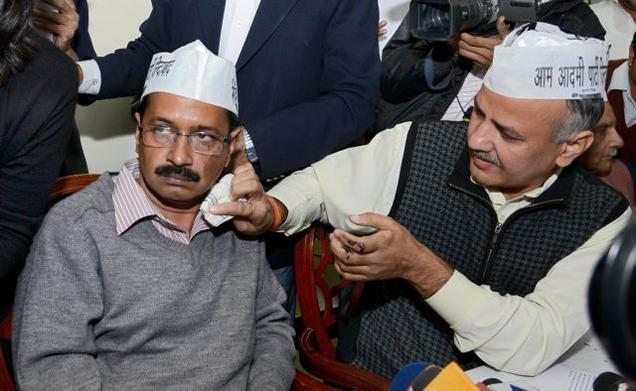In what can be considered a major setback for the AAP government in Delhi, the apex court has ruled that the Delhi government will not be able to probe central government officials. This verdict comes as a big disappointment for the Kejriwal government as it was seeking to control agencies like the Anti-Corruption Branch (ACB).
The Supreme Court has settled that only the Centre has jurisdiction over it. Therefore, the dispute over the Anti-Corruption Branch (ACB) being directed by the Lt. Governor, not to take cognizance of offenses against central government employees, has been decided conclusively in the Centre’s favour. This, therefore, comes as a big jolt for the AAP government in Delhi. This was the major point of dispute between the Centre and the Delhi government among several other issues decided by the Supreme Court.
The apex court verdict has decided upon the individual appeals filed in the tussle between the Delhi government and the Centre. It included the issues of challenge to the Lt. Governor’s order directing ACB police station not to take cognizance against central government officials, a notification issued by the Directorate of Vigilance, Government of National Capital Territory of Delhi under the Commission of Inquiry Act, 1952. The notification was issued without the concurrence of the Lt. Governor.
On the issue of the Commission of Inquiry Act, 1952, the apex court decided that the Centre would be the “appropriate authority” under the Act. Therefore, the Delhi government has no power to appoint a Commission of Inquiry. This has come as yet another jolt for the Kejriwal government.
It must be noted that in 2015, the Kejriwal government had constituted a commission of inquiry on the Delhi District Cricket Association (DDCA) probe. It had been argued at that time that the Delhi government had no authority to launch such a probe. However, Kejriwal had vehemently argued at that time that the AAP government in Delhi was competent to constitute such an inquiry commission under the Commission of Inquiry Act, 1952. CM Kejriwal had said, “We will not back off. If MHA (Ministry of Home Affairs) has any problem with Delhi government’s notification to appoint the commission of inquiry to probe into the alleged irregularities in DDCA, it may approach the high court.” However, with the Supreme Court giving a verdict in the favour of the Lt. Governor over this issue, the stand taken by Kejriwal at that time stands negated. It is now amply clear that the Government of National Capital Territory of Delhi has no power to appoint an inquiry commission under the Commission of Inquiry Act, 1952.
On the issue of Electricity Reforms Act, the Court decided that the appropriate authority is the Delhi Government under this Act. The power to appoint a Special Public Prosecutor would also lie within the domain of the Delhi government. As far as the power of revision of minimum rates of agricultural land is concerned, the power would lie with the Delhi government but the Lt. Governor is empowered to refer the matter to the President.
On the issue of control of services, the two-judge bench of the Supreme Court decided to refer the matter to a larger Supreme Court bench consisting of three Judges. Therefore, this matter of dispute between the Centre and the Delhi government will be decided later on.
